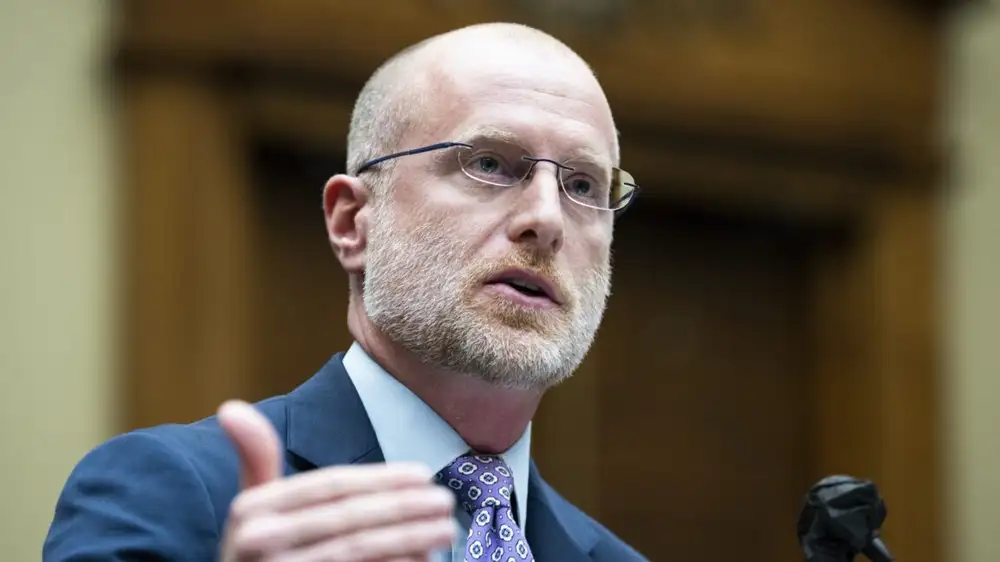The Federal Communications Commission is facing widespread criticism after threatening to revoke EchoStar licenses for spectrum bands that rival firms, including SpaceX, want to take over. Opposition to license revocations came from conservatives, telecom consumer advocates, and some industry groups.
The Free State Foundation, a free-market group that has generally supported Republican priorities at the FCC, filed comments saying that "arbitrary" decisions would create instability in the market for wireless broadband deployment. EchoStar is now facing regulatory uncertainty less than a year after obtaining deadline extensions for its wireless network buildout, the Free State Foundation said:
There is widespread agreement that constructing and operating wireless broadband networks depends on significant private market investment. Legal stability is a necessary ingredient for the operation of any marketplace conducive to competition and growth, including today's dynamic wireless market. Before risking their money in commercial ventures, private investors reasonably seek assurance that their interests and rights will be protected from changes in the rules or agency actions that are arbitrary or unforeseen... Rescission of deadline extension orders granted months earlier undoubtedly creates a type of regulatory uncertainty.
As previously reported, FCC Chairman Brendan Carr directed agency staff to investigate EchoStar's compliance with obligations to provide nationwide 5G service under the terms of its spectrum licenses. EchoStar bought Dish Network in December 2023 and offers wireless service under the Boost Mobile brand.
Carr, who became FCC Chairman in January 2025 after President Trump's second term began, disagreed with last year's decision to give EchoStar an extension from June 2025 to June 2028. His threat to EchoStar made it clear he is considering a reversal of that decision.
EchoStar has been skipping debt-interest payments because of the probe. The Wall Street Journal reported Friday that "EchoStar is considering a chapter 11 bankruptcy filing as the company vies to shield its cache of wireless spectrum licenses from the threat of revocation by federal regulators."
FCC action could help Starlink
A Carr letter to EchoStar last month said the company "negotiated behind closed doors during the previous Administration" to extend its deadline and avoid "the agreed-upon consequences" for failing to meet its buildout obligations. Those potential consequences include "the loss of its spectrum licenses and significant financial payments," the Carr letter said.
EchoStar losing licenses could help Starlink operator SpaceX, which alleges that EchoStar hasn't properly utilized its spectrum and urged the FCC to reallocate frequencies in the 2 GHz band "for sharing among next-generation satellite systems." Separately, Vermont-based VTel Wireless asked the FCC to reconsider its 2024 decision to extend EchoStar construction deadlines for spectrum in several bands. That includes the 2 GHz band SpaceX complained about and spectrum in 600 MHz and 700 MHz bands.
When Carr sent his letter, the FCC opened one proceeding seeking public comment on EchoStar's use of its 2 GHz spectrum and another on the VTel Wireless petition. There was a June 6 deadline for comments on both.
Michael O'Rielly, a Republican who served as an FCC commissioner from 2013 to 2020, released a statement supporting EchoStar. "Companies should receive fair treatment by the government and be able to rely on agreements entered into with government agencies," O'Rielly said. His statement praised EchoStar's attempt "to complete a modern Open RAN 5G network with American vendors" and said that "the market should determine whether its wireless offering can be successful."
Consumer advocates at Public Knowledge and New America's Open Technology Institute told the FCC that "any proceeding that jeopardizes EchoStar's existence will harm competition, hurt American consumers, and jeopardize national security."
Network contractors say jobs are at stake
About 30 general contractors that are working with EchoStar to deploy its 5G network urged the FCC to leave its earlier decision in place. "Together, we have helped [EchoStar] deploy more than 24,000 cell sites and counting, covering more than 80 percent of the US population (268 million Americans)... EchoStar's deployment has created many jobs in local communities across the countries—both at our companies and those in the broader wireless infrastructure ecosystem," the filing said. "Any actions undertaken by the Commission that would result in halting EchoStar's wireless buildout would have a direct negative impact on these jobs and would also pose significant economic challenges for our businesses."
Incompas, a communications industry trade group, said that revoking the deadline extension "would undermine regulatory certainty and threaten to disrupt ongoing investments in advanced network infrastructure, including EchoStar's important work to integrate Open RAN and satellite capabilities."
EchoStar, SpaceX, and VTel Wireless each submitted one last filing on Friday. SpaceX urged the FCC "to ensure that valuable spectrum resources are not allowed to remain fallow but instead are made available to those who would put them to productive use to provide advanced services to consumers across the United States."
VTel Wireless, which was outbid by Dish in auctions for spectrum licenses, said that "nothing prevented EchoStar from meeting its final buildout deadlines; it simply made the business decision not to do so, at least until it faced the loss of its licenses. Under the circumstances, the Commission should investigate EchoStar's conduct in seeking an extension of its final buildout deadlines."
EchoStar in financial trouble
EchoStar said that a reversal "would unlawfully discriminate against EchoStar by treating it materially differently, and indeed much worse, than similarly situated entities," and "would be a sharp and discriminatory departure from the thousands of license extensions the Bureau granted in the last two administrations—often without conditions, without public notice, and with a mere stamp grant."
EchoStar's financial stability is threatened by the FCC proceeding, as the company last week announced it would skip debt-interest payments that were due on June 2. EchoStar said it made the decision "in light of the uncertainty raised by the Federal Communications Commission review."
There is a 30-day grace period before a default. "EchoStar has elected not to make the Interest Payments to allow time for the FCC to provide the relief requested in our FCC filing prior to the expiration of the 30-day grace period," the company said. The Wall Street Journal article on EchoStar's potential bankruptcy filing said the firm "has skipped about $500 million in debt-interest payments in recent days, starting a countdown that would push the company into default before July if not cured within the bonds' grace period."

 Costco customer sues for $14 million, says liquor display fell and caused brain injury
Costco customer sues for $14 million, says liquor display fell and caused brain injury